Have you ever wondered what makes a community strong and united? The answer lies in bayanihan, a Filipino tradition where neighbors come together to help each other, often seen in the image of villagers lifting a house and moving it to a new location. This spirit of collective effort and cooperation is what keeps communities resilient and thriving.
In today’s fast-paced world, we often forget the power of working together. Bayanihan is more than just a tradition; it’s a way of life that fosters unity, trust, and support. By keeping bayanihan alive, we build stronger bonds, create lasting relationships, and achieve more as a community than we could ever do alone.
Imagine a world where everyone helps each other without expecting anything in return. This is the essence of bayanihan, and it’s something worth preserving. Embracing this spirit not only enriches our lives but also ensures that we pass on these values to future generations. Let’s revive bayanihan and make our communities stronger and more connected.
I often speak about bayanihan in my keynotes. If you’re looking for a motivational speaker in the Philippines who can turn Filipino values into workplace practices, I’d be glad to help.
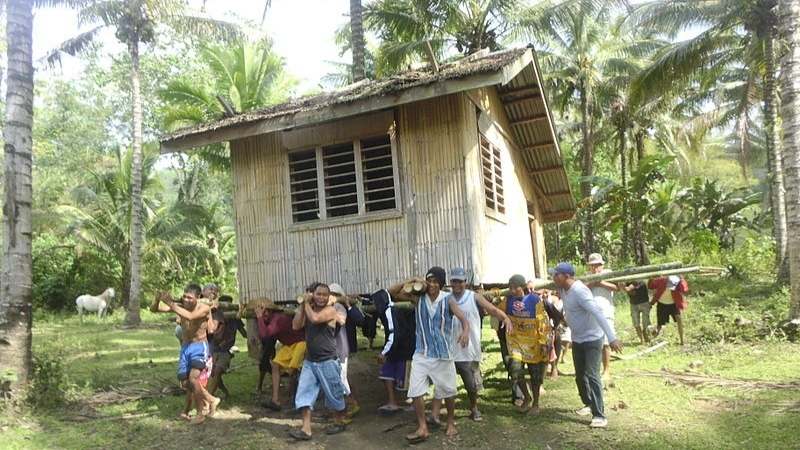
Understanding Bayanihan
A group of neighbors gathered under the tropical sun, their hands joined, lifted a whole nipa hut onto their shoulders. This image, iconic in every sense, captures the essence of bayanihan, a core Filipino value.
This scene was famously depicted by Carlos “Botong” Francisco, a revered Filipino painter. His art immortalized bayanihan, showing the deep communal ties that define Filipino culture. His paintings are not just art; they are history, alive and breathing the spirit of unity.
The nipa hut, or ‘bahay kubo’, isn’t just a structure made of bamboo and leaves; it’s a symbol of home, of belonging. When the community carries this hut, they’re not just moving a house—they’re safeguarding a family’s entire world.
Why do they do it? It’s not for money or fame. It’s for something more profound: the unspoken bond of community. In bayanihan, every step together strengthens the connections that bind them.
Fast forward to today, and the spirit of bayanihan continues in different forms. It’s in the way Filipinos rally during typhoons, earthquakes, or even in times of personal need within the community.
Mike Hanopol, in his song ‘Bayan ni Juan’, captures this enduring spirit. His lyrics resonate with the collective aspiration for a better life, underpinned by mutual support and cooperation—hallmarks of bayanihan.
Through these cultural expressions, bayanihan is celebrated and reinforced. It’s a reminder that in unity there is strength. This unity transforms ordinary individuals into heroes of their own communities.
As we delve deeper, remember these stories and songs are not just cultural footnotes. They are the vibrant, living expressions of bayanihan that continue to inspire and drive the Filipino community today.
To understand a culture, one needs to the origins of the word they used. Sure, a dictionary definition can help you. But what you’ll get from dictionaries are surface meanings.
Even ChatGPT can’t help you for it gathered only what you’ll find in dictionaries. So, allow me to share with you the deeper meanings of bayan, bayani, and bayanihan.
Bayan
“Bayan” might just seem like a word, but for Filipinos, it runs much deeper. It can mean community. It can mean nation. Yet, it transcends geographical boundaries, embodying the spirit and soul of the Filipino people wherever they are.
When we say ‘bayan,’ we’re not just talking about a physical town or city. It’s about the people. A place devoid of its inhabitants isn’t referred to as ‘bayan’. It’s the presence and the collective spirit of the people that define it, making it more than just a locale.
This concept extends globally. When Filipinos live or travel abroad, they find a piece of home in each other. In Korea, Taiwan, Hong Kong, and Singapore—wherever I encountered fellow Filipinos, they were my ‘kababayan’, my people. This connection brings an immediate sense of comfort and familiarity.
Being with ‘kababayan’ abroad is like finding an oasis of familiarity in a desert of the unknown. There’s an innate comfort in being with those who share the same roots, language, and cultural nuances. It’s a natural bond that reassures and provides a sense of belonging.
‘Bayan’ is thus a living, breathing entity, carried in the hearts of its people. Whether we are home or away, the bond remains, bridging distances and creating a global community that supports and understands one another. It’s a profound testament to the enduring spirit of the Filipino people.
Bayani
In English, ‘bayani’ translates to ‘hero.’ But hold that thought—because the Filipino bayani is not your typical Western superhero. This distinction is crucial to understanding the Filipino psyche.
The Western hero is often portrayed like Superman: strong, nearly invincible, the savior who swoops in to rescue everyone. These heroes stand out for their superhuman capabilities and daring feats.
The Filipino bayani, however, is different. Strength and bravery are admired, yes, but not required. What matters is a profound love for one’s bayan—community or nation. This love is the true mark of a bayani.
This love manifests not just in grand gestures but in daily sacrifices and commitments. The ultimate sacrifice, dying for one’s country, epitomizes the bayani. But it’s not the only way to demonstrate one’s love for the bayan.
Consider our Overseas Filipino Workers (OFWs), hailed as the ‘Bagong Bayani’ or new heroes. They may not wield weapons or wear capes, but their contributions are heroic. They support not just their families but significantly bolster the Philippine economy.
Through their hard work and perseverance abroad, OFWs maintain deep connections back home, helping to sustain their local communities. Their commitment showcases their deep love for the bayan.
Thus, in the Filipino context, a bayani is someone whose actions—big or small—stem from a heartfelt dedication to their community and country. It’s a heroism rooted not in might, but in love and sacrifice for the bayan.
Bayanihan
Bayanihan, pronounced /ˌbʌɪəˈniːhan/, is a profound Filipino concept rooted in the words ‘bayan’ (community) and ‘bayani’ (one who loves his community). It represents a communal spirit that transcends individual interests, focusing on collective well-being.
At its core, bayanihan is about unity. It occurs when people come together to assist individuals and communities in need. What’s remarkable is that this help is offered without any expectation of return, purely out of a communal sense of duty and empathy.
This selfless act of helping, often spontaneously and without being asked, especially to strangers, is a distinguishing mark of Filipino culture. It embodies the true spirit of community support and generosity that defines bayanihan.
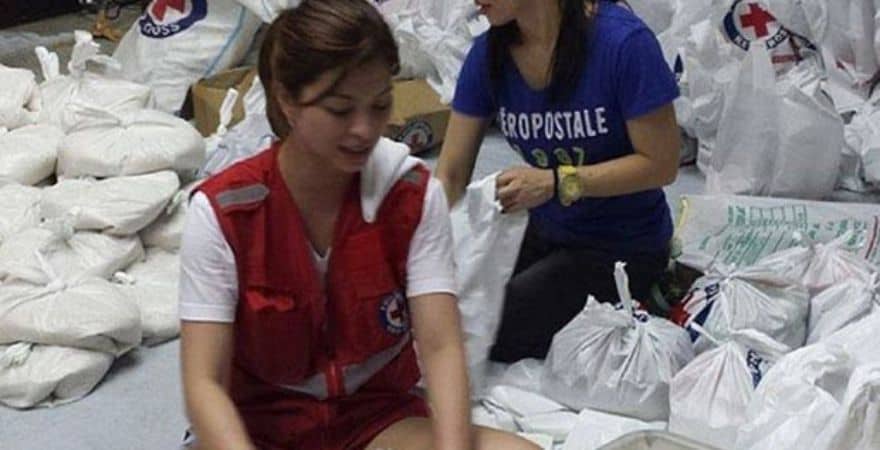
Other Filipino terms related to bayanihan include ‘tulungan’ (to help each other) and ‘damayan’ (to sympathize). These words emphasize mutual support and shared empathy, essential components of the bayanihan spirit.
Bayanihan is also intertwined with other enduring Filipino values, such as ‘malasakit‘ (compassion), ‘pagdadamayan’ (mutual aid), ‘pakikipagkapwa-tao‘ (humanity towards others), and ‘kusang-palo’ (volunteerism). Each of these values enhances the concept of bayanihan, enriching its meaning and impact.
In times of crisis, such as during heavy typhoons where everyone might be affected, the spirit of bayanihan becomes even more visible. Filipinos are known to pitch in whatever they can, often going beyond their means to help others in the community.
“Magbayanihan tayo,” a call to action often heard in Filipino communities, invites everyone to become heroes for each other. It’s a rallying cry that encourages collective heroism, urging everyone to rise together and support one another in times of need.
Bayanihan turns ordinary people into heroes. It is the antidote to indifference, division, mistrust, and mediocrity. Understand why and how it works to build an engaged, united, trusting, and excellent company or community.
Modern Examples of Bayanihan
The EDSA People Power Revolution is perhaps the most dramatic example of bayanihan in modern Philippine history. It was more than a political upheaval; it was a moment when millions came together, hand in hand, in a peaceful display of unity to end the oppressive regime of Ferdinand Marcos. This event exemplified bayanihan on a grand scale, demonstrating the power of collective action for the greater good.
Our geographical setup exposes us to numerous natural calamities, yet it also showcases our resilience and willingness to help. Year after year, typhoons strike, but the readiness of Filipinos to extend a helping hand never wavers. This readiness is a testament to the enduring spirit of bayanihan among the populace.
I remember when Mt. Pinatubo erupted during my college years. The devastation was immense, but so was the response. I rallied my classmates, and together we accomplished what seemed impossible—we provided aid to those affected. This experience was a personal encounter with the power of collective effort.
Bayanihan manifests in various forms today, reflecting the evolving needs and capacities of our society. Initiatives like Angat Buhay, Community Pantries, and Community Kitchens are just a few examples where bayanihan is vividly alive. These efforts focus on uplifting lives through communal support and shared resources.
Celebrities like Angel Locsin have also played a significant role in modernizing the concept of bayanihan. They use their influence to mobilize resources and attention during times of crisis, further demonstrating that bayanihan can adapt to contemporary contexts.
Furthermore, programs like Gawad Kalinga and Tulong Kabataan focus on building homes and supporting the youth, respectively. These initiatives extend the bayanihan spirit by addressing long-term community needs, proving that bayanihan is not just about immediate response but sustainable support.
The Rise Against Hunger campaign and the Philippine Red Cross are also notable for their contributions during disasters. They exemplify how organized efforts can amplify the impact of bayanihan, reaching more people and making systematic changes.
Efforts by groups like the Bayanihan Musikahan have shown how cultural endeavors can also be a platform for bayanihan, using music to raise funds and awareness for various causes.
Moreover, grassroots movements and local NGOs across the country embody bayanihan by engaging in activities that protect the environment, promote education, and ensure food security among marginalized populations.
All these examples reflect that the spirit of bayanihan is not just a relic of the past; it is a vibrant and essential part of contemporary Filipino identity. Each act of kindness and cooperation reinforces the fabric of our society, making it stronger and more resilient.
Bayanihan today is as dynamic as it is traditional, adapting to the challenges of the times while retaining its core essence of love, sacrifice, and community service. It remains a powerful force for social change and national unity.
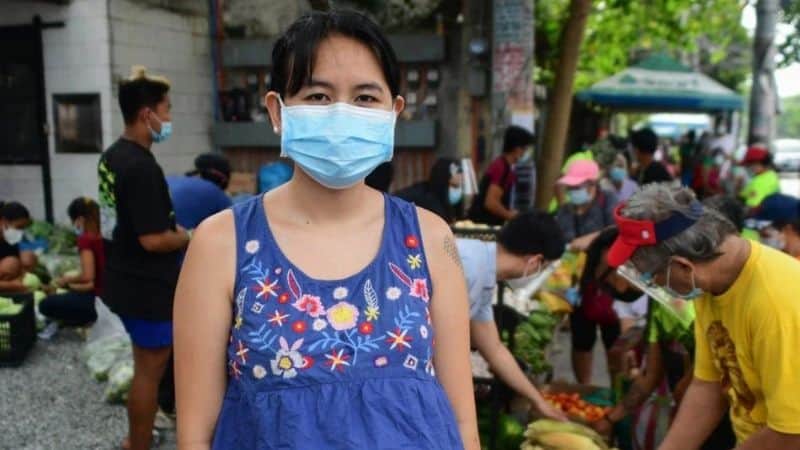
10 Practical Steps to Do Bayanihan
To truly live out the spirit of bayanihan, we need more than just words. We need action—real, practical steps that every Juan and Juana can take to turn our community into a powerhouse of mutual help and cooperation. Here’s how we make it happen:
- Organize Community Clean-Ups. Let’s start simple. Gather your neighbors for a regular clean-up of your streets, parks, or beaches. It’s not just about beautifying spaces; it’s about taking collective responsibility for our environment. Plus, it’s a great way to strengthen bonds while keeping your area clean.
- Start a Barangay Resource Sharing Initiative. Set up a system where tools, books, and other resources can be borrowed and lent within the community. This promotes not only sharing but also reduces waste and expenses, making it easier for everyone to access what they need without breaking the bank.
- Establish Community Gardens. Why buy veggies when you can grow them? Community gardens are fantastic for urban areas. They provide fresh produce, reduce carbon footprints, and teach valuable gardening skills. More importantly, they sow the seeds of cooperation and sustainability.
- Initiate Free Skill-Sharing Workshops. Knowledge is power, but it’s even more powerful when shared. Organize workshops where residents can teach each other skills like cooking, sewing, or basic computer skills. It’s about empowering your community from the inside out.
- Develop a Local Mentoring Program. Pair up the young and the not-so-young. Kids and teens can learn a lot from the experiences of older community members, while the elderly can feel more connected and valued. It’s a win-win that enriches everyone involved.
- Coordinate Disaster Response Drills. In a country prone to natural disasters, preparedness saves lives. Organize regular drills and educational talks to ensure that everyone knows what to do when disasters strike. Preparedness breeds confidence and calm in the face of calamity.
- Promote Local Art and Culture. Host local art shows, music nights, or dance workshops. Celebrating local talent not only boosts cultural pride but also supports local artists economically. Culture is a glue that can hold a community together, celebrating diversity and unity alike.
- Set Up a Community Savings Group. Financial emergencies hit hard. A community savings group can offer interest-free loans to its members in times of need, fostering financial solidarity and support that banks often can’t provide.
- Implement a ‘Bayanihan Day.’ Dedicate one day a month where the community comes together to tackle larger projects, like repairing someone’s home or helping a family in need. It’s about big, bold acts of kindness that show what we’re capable of together.
- Create a Community Recognition Program. Celebrate those who go the extra mile. Whether it’s the teenager who tutors kids or the aunty who feeds stray animals, recognizing their efforts reinforces positive behavior and encourages others to act.
Bonus Tip: Advocate for Community-Led Initiatives at the Local Government Level. Engage with local leaders to support these bayanihan activities through funding, resources, or policy-making. It’s about creating a supportive ecosystem that nurtures the bayanihan spirit at every level.
Remember, every step you take towards promoting bayanihan strengthens the fabric of our society. It’s not just about helping each other out; it’s about building a community that stands strong together, resilient and ready for whatever comes its way.
So let’s roll up our sleeves and get to work. It’s time to turn every Filipino into a bayani, one act of community service at a time. Are you ready to be a hero in your community? Let’s make bayanihan more than just a concept—let’s make it a way of life.
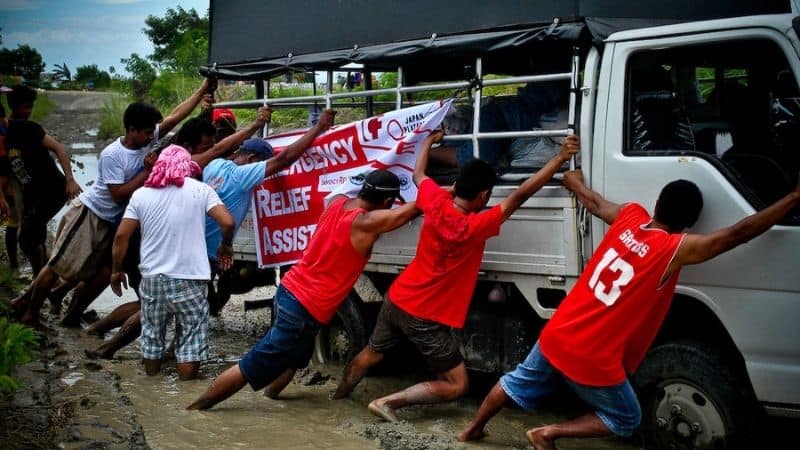
10 Essential Filipino Values that Promote the Bayanihan Spirit
Bayanihan is more than just a word; it’s a way of life. It’s the spirit of community and cooperation that shines brightly, especially during typhoons and other calamities. These tough times don’t make us heroes; they bring out the heroes, the mga bayani, within us.
This bayanihan spirit is built on several important values that bind us together. Let’s explore these values that make bayanihan so powerful.
1. Pakikipagkapwa-tao (Sense of Humanity and Shared Identity)
Imagine how warm it feels when someone smiles at you. Pakikipagkapwa-tao is about sharing kindness and treating everyone with respect. It’s like having a big family where everyone cares for each other.
2. Damayan (Sympathy and Compassion)
Think about comforting a friend who’s feeling down. Damayan is showing compassion and support, especially when others are in trouble. It’s about standing by each other, no matter what.
3. Pagtutulungan (Helping One Another)
Picture yourself helping a neighbor carry heavy bags. Pagtutulungan means working together to lighten the load. It’s all about teamwork and making things easier for everyone.
4. Pagkakaisa (Unity and Solidarity)
Imagine a team working together to win a game. Pagkakaisa is all about unity and sticking together. When we’re united, we can overcome any challenge.
5. Kagandahang-loob (Generosity and Goodness of Heart)
Think about sharing your favorite snacks with a friend. Kagandahang-loob is being generous and kind without expecting anything in return. It’s giving from the heart.
6. Pakikisama (Smooth Interpersonal Relationships)
Imagine playing a game where everyone gets along and no one argues. Pakikisama is about being friendly and getting along well with others. It makes everyone feel happy and included.
7. Paggalang (Respect)
When you say “please” and “thank you,” you’re showing paggalang. It’s about respecting others and valuing their feelings and opinions. It creates a culture of mutual respect.
8. Utang na Loob (Gratitude and Debt of Gratitude)
Think about how you feel when someone helps you, and you want to help them back. Utang na loob is being grateful and repaying kindness. It’s a way of keeping the cycle of goodwill going.
9. Sama-sama (Togetherness)
Imagine how fun it is to do things with friends. Sama-sama means doing things together and enjoying each other’s company. It builds strong, happy communities.
10. Pagpapakumbaba (Humility)
Think about being really good at something but not bragging about it. Pagpapakumbaba means being humble and recognizing that everyone has something valuable to offer.
These ten values are the building blocks of bayanihan. When we practice them, we create a strong, united community ready to face any challenge. Remember, bayanihan brings out the best in us, turning everyday people into heroes. Together, we can make a big difference.
15 Creative Ways to Promote Bayanihan
Here are some creative activities to promote Bayanihan as a core Filipino value:
1. Community Garden Projects
Organize a community garden where residents can come together to plant, cultivate, and harvest fruits and vegetables. This not only promotes cooperation but also supports local food sustainability.
2. Neighborhood Clean-Up Drives
Host regular clean-up drives in various neighborhoods, encouraging residents to work together to keep their environment clean and beautiful. Offer incentives like community picnics or small celebrations after the clean-up.
3. Skill-Sharing Workshops
Set up workshops where community members can teach each other valuable skills such as cooking, crafting, gardening, or even technical skills like coding or digital marketing. This fosters a sense of shared learning and mutual support.
4. Disaster Preparedness Drills
Conduct community-wide disaster preparedness drills. These activities can include first aid training, evacuation plans, and resource pooling, ensuring everyone knows how to work together in emergencies.
5. Bayanihan Festivals
Organize annual or bi-annual festivals celebrating Bayanihan. Include activities like group performances, community games, and collaborative art projects that require teamwork and cooperation.
6. Time Bank Initiatives
Create a time bank where community members can exchange services without using money. For example, an hour of gardening help can be traded for an hour of tutoring. This promotes mutual aid and community solidarity.
7. Bayanihan Storytelling Nights
Host storytelling nights where elders and community members share stories of Bayanihan and cooperation from their past. This can inspire younger generations to embrace and continue the tradition.
8. Collaborative Art Projects
Initiate collaborative mural painting or public art projects that require contributions from various community members. This can symbolize unity and collective effort while beautifying public spaces.
9. Community Sports Tournaments
Organize sports tournaments that emphasize teamwork and community spirit. Include activities where teams must work together, such as relays or group challenges, to promote unity and cooperation.
10. Bayanihan Awards
Establish an annual awards program recognizing individuals and groups who have exemplified the spirit of Bayanihan in their actions. This can motivate others to contribute positively to their communities.
11. Shared Meal Programs
Develop programs where community members can share meals, like potlucks or community kitchens. This can help build stronger bonds and ensure that everyone has access to nutritious food.
12. Local Talent Shows
Host talent shows that encourage groups to perform together. This can include dance troupes, choirs, or even collaborative art performances, highlighting the importance of working together.
13. Bayanihan Building Projects
Engage in community-building projects such as constructing playgrounds, community centers, or libraries. These projects can involve the collective effort of many community members, promoting a sense of ownership and pride.
14. Peer Support Groups
Create peer support groups for various needs, such as parenting, mental health, or entrepreneurship. These groups can provide a platform for sharing experiences and offering mutual support.
15. Youth Engagement Programs
Develop programs specifically for the youth that emphasize the importance of Bayanihan. This could include mentorship programs, youth leadership training, and community service projects.
By implementing these activities, communities can strengthen the practice of Bayanihan, fostering a culture of cooperation, mutual support, and shared success.
Let’s do bayanihan.
Ready to share your bayanihan story? We want to hear from you! Whether you’ve started a community pantry, organized a cleanup, or simply helped a neighbor in need, your story is important. By sharing, you inspire others and spread the spirit of bayanihan even further.
Every story has the power to ignite a movement or strengthen a community. When we share our experiences, we not only connect with others but also discover new ways to contribute to our communities. Your story could be the spark that encourages someone else to act.
Join our community of doers and dreamers. Share your bayanihan initiatives on our platform and become part of a growing network of individuals committed to making a difference. Together, we can turn individual actions into a collective force for good.
Let’s build a tapestry of bayanihan stories. Share yours today and help us showcase the power of community and cooperation. Remember, every act of kindness counts, and your story could lead the way for many more.
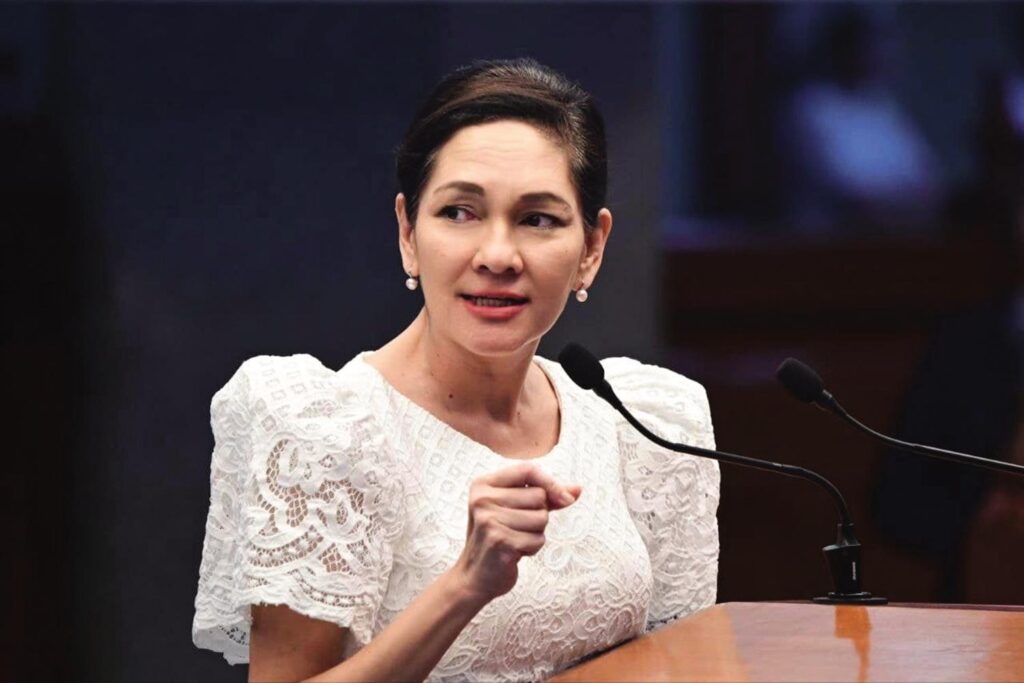
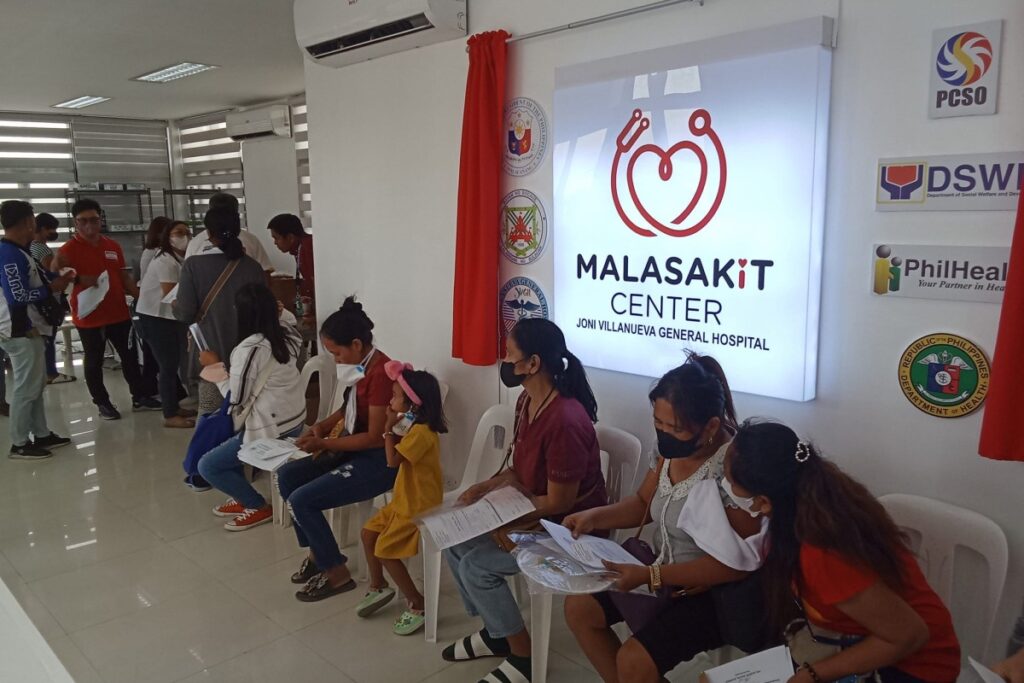
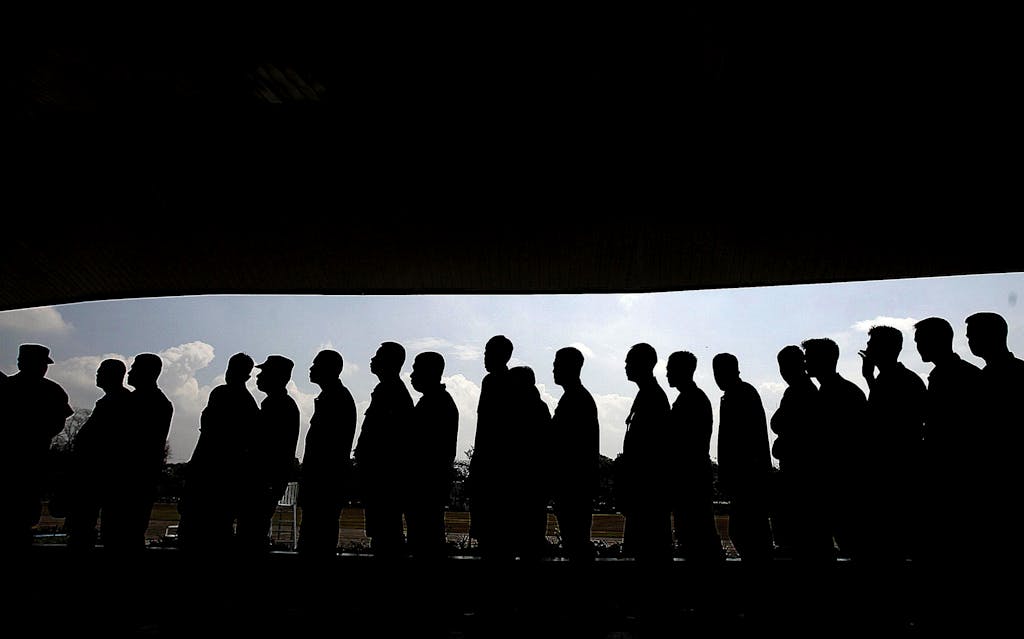


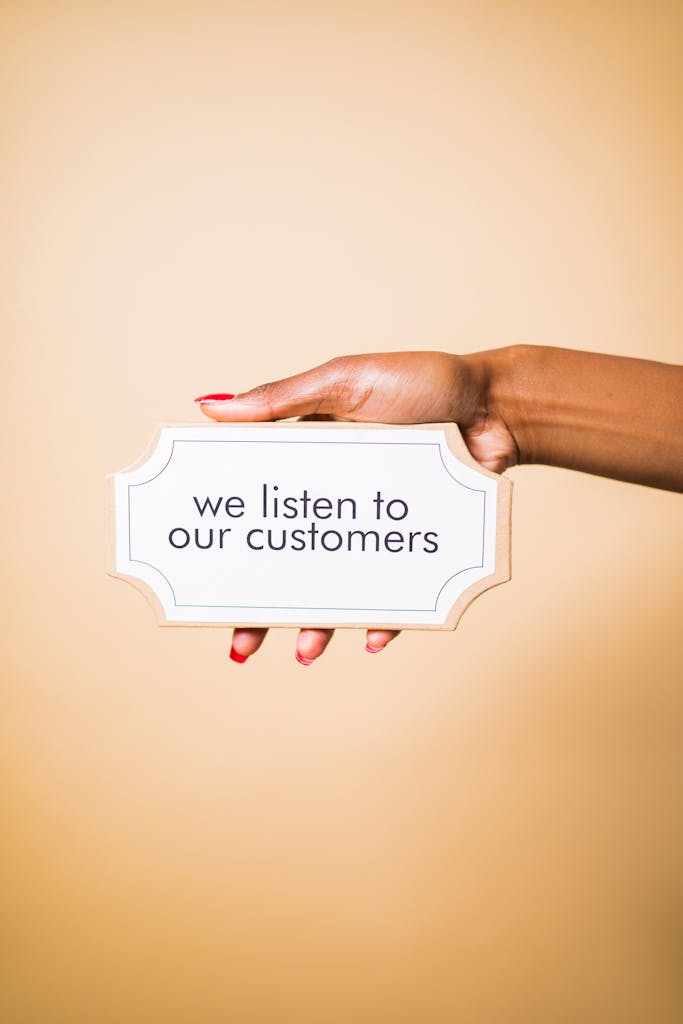

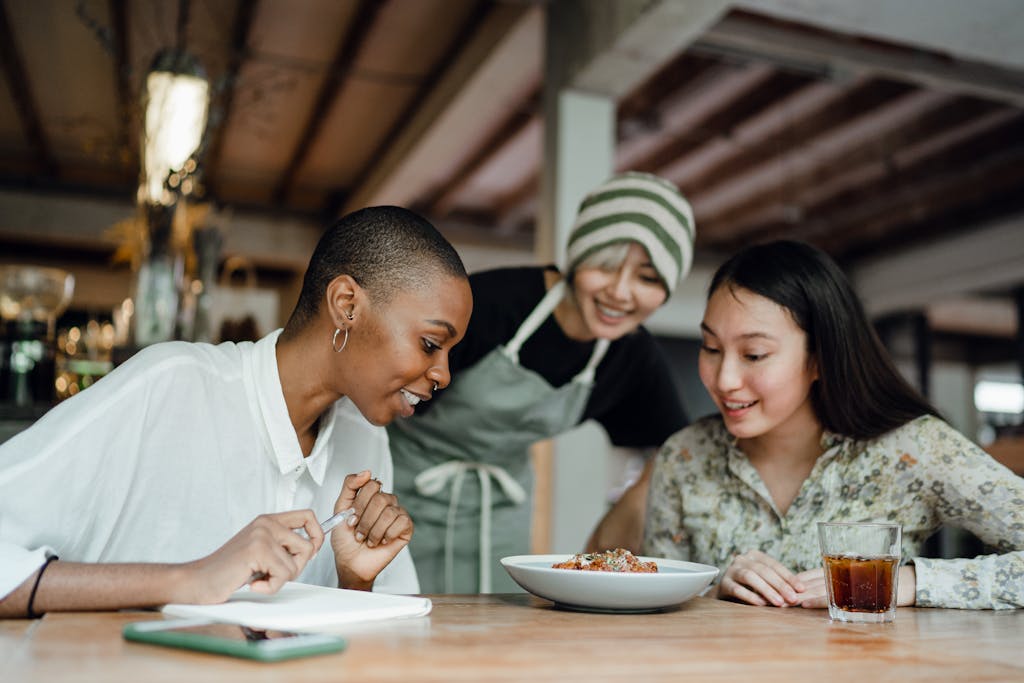

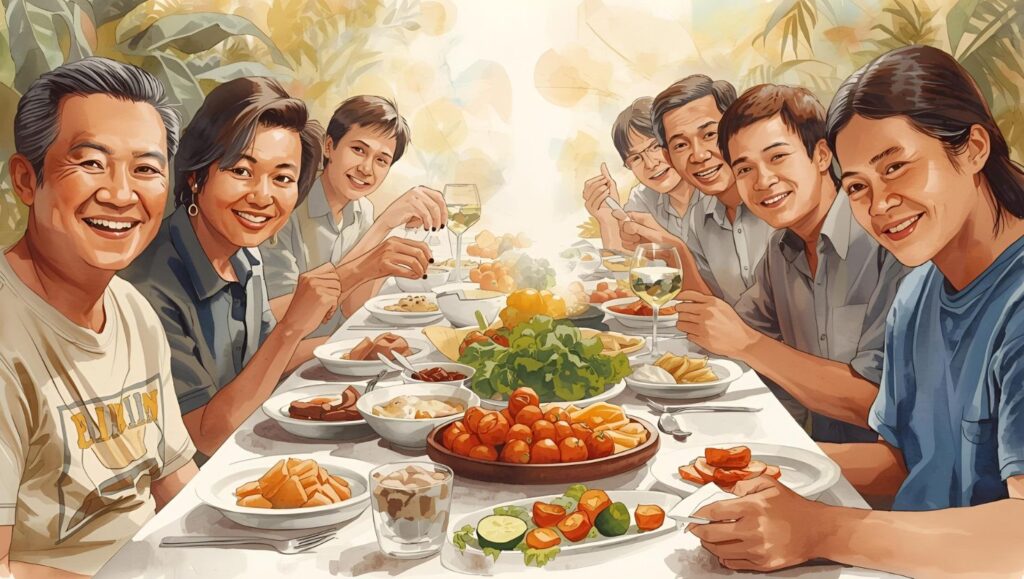
Bayanihan is a beautiful concept of loving your neighbors as Jesus commanded. It’s a perfect example of how we adapt it. Wherever we go, I encourage us to practice this bayanihan spirit. Mabuhay tayong lahat!
Thank you for this inspiring piece on Bayanihan! I love how you’ve captured the true essence of community spirit and collaboration. Your reflections on the power of unity and helping one another resonate deeply, especially in times of challenge. This article serves as a beautiful reminder of the importance of togetherness. I appreciate you sharing such meaningful insights
Bayanihan is a beautiful Filipino cultural tradition that embodies unity, cooperation, and community spirit. It’s a concept where people come together to help one another, particularly in activities like moving a house or building a new one. This spirit of bayanihan can also be seen in real estate decisions, where consulting with others and seeking advice plays a crucial role. When asking questions before purchasing real estate property, tapping into the bayanihan spirit means reaching out to experts, friends, and family for insights and guidance. This blog post on questions to ask before purchasing real estate property is a great resource to start your bayanihan journey in making informed decisions about your investment. 🏡🌟🤝
The Philippines is rife with weaving traditions across its many diverse communities.
I said that the word bayan refers to a place or people. Filipinos call our town proper bayan. We call our country bayan. When meeting new people, we typically ask them for their provinces. We wanted to know if we were born in the same town, province, or region.
Because we are looking for connection.
When I said that a bayani is someone who shows love for his bayan, I meant it to be love for his people. That’s because the place is important only because of the people who live there.
Kababayan means more than people living in one place. Kababayan means that the people we meet “are one of us”. We belong together.
January 2, 2022